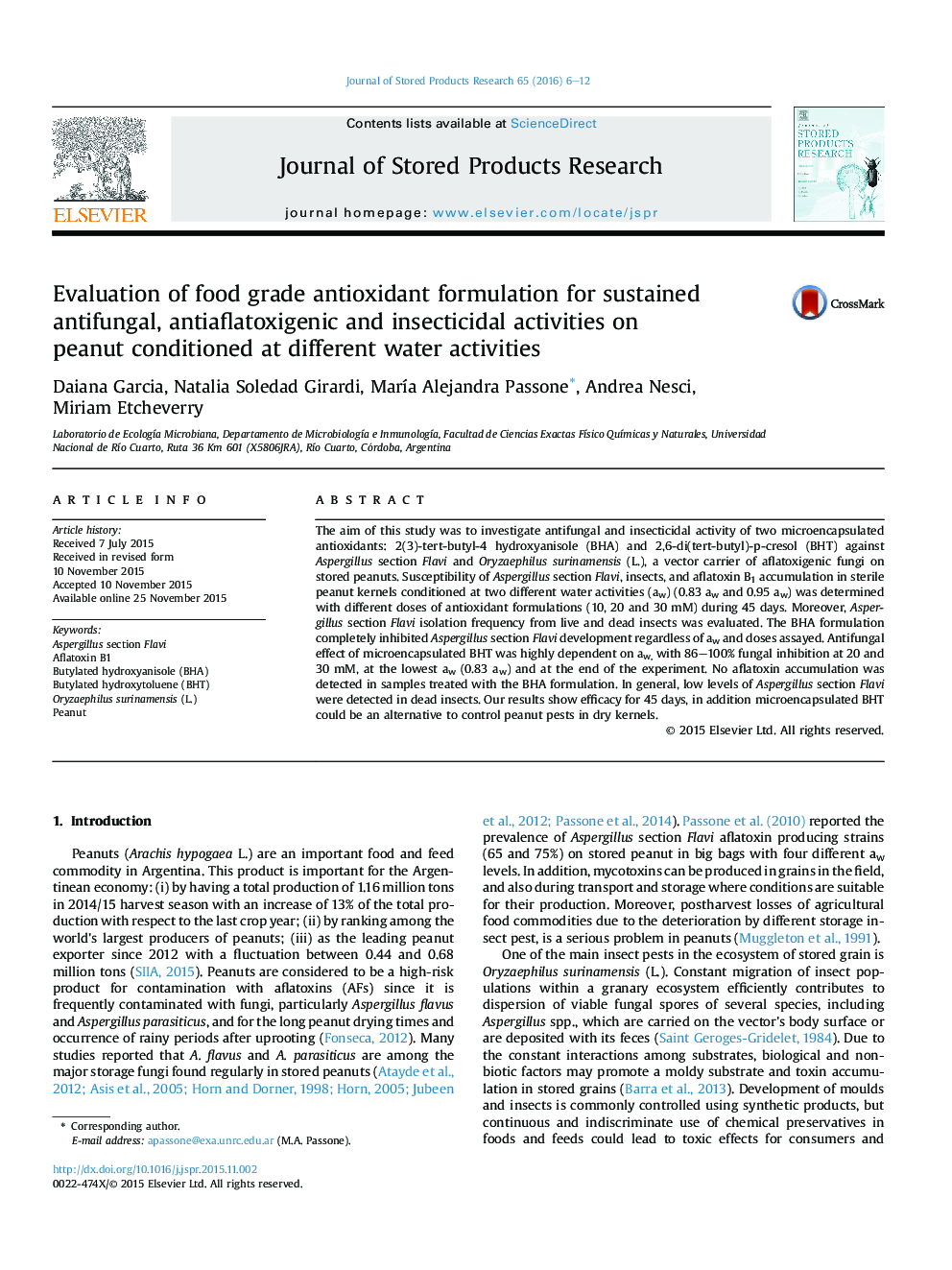| Article ID | Journal | Published Year | Pages | File Type |
|---|---|---|---|---|
| 4517014 | Journal of Stored Products Research | 2016 | 7 Pages |
•Formulations based on antioxidants (BHA and BHT) showed antifungal and insecticide effectiveness in peanut kernel.•No Aflatoxin B1 was found in the presence of BHA formulation.•No Aspergillus section Flavi was isolated from live or dead insects in the presence of 30 mM of microcapsules of BHA.
The aim of this study was to investigate antifungal and insecticidal activity of two microencapsulated antioxidants: 2(3)-tert-butyl-4 hydroxyanisole (BHA) and 2,6-di(tert-butyl)-p-cresol (BHT) against Aspergillus section Flavi and Oryzaephilus surinamensis (L.), a vector carrier of aflatoxigenic fungi on stored peanuts. Susceptibility of Aspergillus section Flavi, insects, and aflatoxin B1 accumulation in sterile peanut kernels conditioned at two different water activities (aw) (0.83 aw and 0.95 aw) was determined with different doses of antioxidant formulations (10, 20 and 30 mM) during 45 days. Moreover, Aspergillus section Flavi isolation frequency from live and dead insects was evaluated. The BHA formulation completely inhibited Aspergillus section Flavi development regardless of aw and doses assayed. Antifungal effect of microencapsulated BHT was highly dependent on aw, with 86–100% fungal inhibition at 20 and 30 mM, at the lowest aw (0.83 aw) and at the end of the experiment. No aflatoxin accumulation was detected in samples treated with the BHA formulation. In general, low levels of Aspergillus section Flavi were detected in dead insects. Our results show efficacy for 45 days, in addition microencapsulated BHT could be an alternative to control peanut pests in dry kernels.
